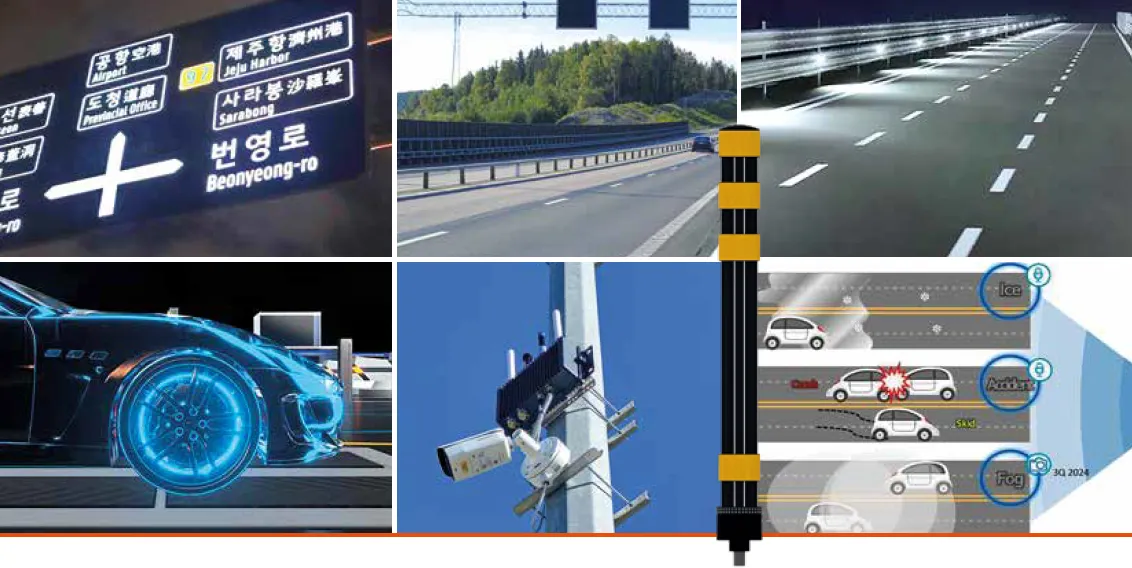
David Crawford investigates a promising development to counter the problem of fog in the Gulf States.
Despite being a largely desert area with low rainfall, fog is a major driving hazard in countries on the Arabian peninsula, such as the UAE.
The fog is the result of moist air moving across from the neighbouring Gulf during the afternoon and evening, and experiencing radiation cooling at night. Although most frequent during the autumn and winter, foggy conditions occur throughout the year causing serious disruption to aircraft movements and road traffic.
In May this year, the UAE government announced plans to install a network of sensor-equipped weather towers along major roads by the end of 2014. Data from the sensors will feed to (among others) the police operations room where officers will use level of horizon view thresholds to set variable message signs to display weather and speed limit warnings.
The initiative follows a series of research tours to countries experiencing similar conditions which was prompted by a fog-induced 200+ vehicle pile-up in 2008 which killed four people and injured 350 when 20 cars burst into flames. At that time there were no weather sensors installed on roads, no real-time traffic information available from a control centre and no advance warning signs.
Two separate incidents in January 2014 involved a total of over 100 vehicles, reigniting the issue and prompting the current urgency.
Meanwhile, Dr Oualid Ben Ali of the University of Sharjah in the UAE, is developing a smartphone-based system designed to give drivers early fog warnings and encourage them to take appropriate action. He has produced a research study on real-time fog warning for the Emirate of Abu Dhabi, as part of a two-year project. The project is sponsored by Abu Dhabi’s Traffic and Patrols Directorate which has a stated aim of achieving zero road deaths by 2030).
Dr Ben Ali claims advantages for his system over fixed fog sensors deployed in other countries that are “static and expensive as a solution”. He sees his proposal as an “original, flexible, inexpensive and efficient approach” that will also suggest alternative routes.
“We have not replicated any existing systems,” he told ITS International. “We’ve come up with one that uses sensors as well as advanced mobile technologies to detect fog in any location of the coverage area.”
A back office system, located in the Abu Dhabi Police headquarters, will collect and analyse real-time data from one or more geolocated sources to determine accurately where areas with heavy fog lie and plot the results onto a geographic information system (GIS). When it has determined the boundaries of fog-affected areas, the system will send details to the country’s telecoms operators, which will transmit warnings to all drivers approaching an area with poor visibility.
Drivers will be able to use their smartphones not only to receive information, but also to warn others about poor visibility conditions, says Dr Ben Ali. “The technology is there. Socially responsible drivers can save the lives of others.”
To participate, they need to keep their phones switched on at all times, and these need to be programmed for their GIS location to be trackable.
In the UAE, 80% of the population have smartphones – one of the highest penetration rates in the world – and 4G mobile broadband access is widely available.
A separate module will enable smartphone-equipped police patrols to report the start of a foggy incident and their coordinates to the back office via a screen icon. This will start the creation of the foggy zone on a GIS map.
The app is midway through development, with a view to being uploadable “within a few months”, says Dr Ben Ali. He sees the UAE’s planned network of sensor towers as an additional source of data and is confident that the app can also easily be configured to warn drivers about floods, rain, sandstorms and other adverse weather conditions.
• The Abu Dhabi Police Traffic and Patrols Directorate is gaining a reputation for innovation. Its 2014 Road Safety World Cup smartphone app put teams named after traffic issues in competition to score the largest number of tweets on road safety.








